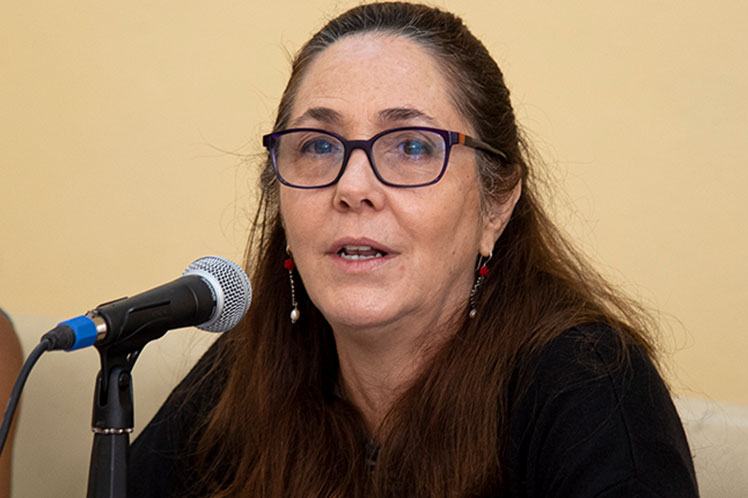Cenesex General Director Mariela Castro explained that one of the challenges is the monitoring of transgender children and adolescents in various directions, with emphasis on the family, school, community, health and communication spheres.
We still do not see the transgender issue of childhood and adolescence reflected in social media, Castro lamented at the 7th International Trans-Identities, Gender and Culture Colloquium that is taking place at the Cenesex headquarters in Havana in the framework of the 16th Cuban Day against Homophobia and Transphobia.
Those children who are in a process of conformity and gender identity will understand that what they are experiencing is not wrong, it is neither bad nor strange, they only need understanding, accompaniment and acceptance by society.
They do not have to place themselves in any stereotype that already exists, and although we do not know it, what is important is what they feel. We have to be able to say you are not wrong, we are the ones who do not know.
We are working in the field of education, and among the issues, there is the school regulation, since there is nothing related to trans children and adolescents.
That a trans child has to cut his hair, that if he has to be dressed in such a way, it makes him suffer and this attitude has to end at school, because children understand everything, those who do not understand it are their parents, teachers and the rest of adults.
We are going to achieve it, the head of Cenesex stressed, because if we don’t do it, then it’s not a revolution, “because in a revolution you have to change everything that must be changed, as the historic leader, Commander-in-Chief Fidel Castro, would say.”
She pointed out that the policies for the issue of trans people can be good, but if they do not work in the territories, it does not exist, it is a dead letter.
The integration of trans people in the knowledge system of undergraduate and postgraduate professional training is vital, Castro noted.
Now it is imperative to achieve integration, participation and social justice on this issue, taking into account the legislative policy, the training of human resources, the training of trans people, and the awareness of managers.
Castro considered that the Civil Status Registry Law should be approved urgently, since it will prevent trans people from having to transform their bodies so that the law recognizes their identity.
Before, we knew few trans men at Cenesex, but now there are more, which is why their participation in the strategies is facilitated so that they provide important references, she pointed out.
Castro advocated the development of a glossary of terms to make it easier to build concepts and establish dialogue.
Concepts are important and explaining them becomes more relevant, we have already seen what happened with the family, some saw it for reproductive purposes, others for emotional purposes, and not very few as a biological link, Castro commented at the meeting, which will close on Sunday.
 Escambray ENGLISH EDITION
Escambray ENGLISH EDITION





A very educational article, Gracias!